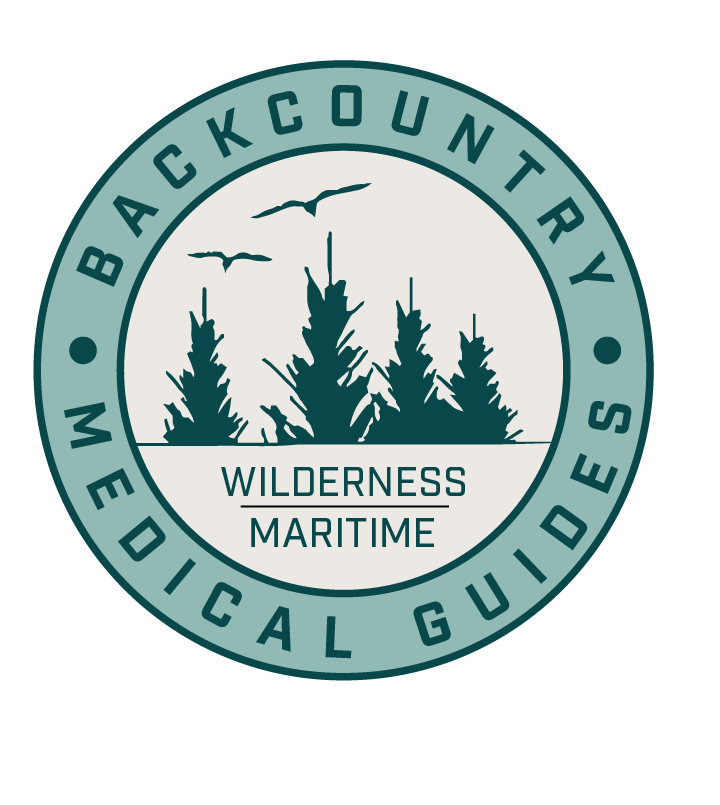At Backcountry Medical Guides, we believe every skill taught, every lesson learned, and every life saved is part of a larger story—one of resilience, readiness, and a shared commitment to adventure well. The impact of our work isn’t just measured in numbers; it’s reflected in moments where training meets real life, where preparation becomes action, and where confidence turns into courage…
Read MoreWe love hearing about all the incredible places our students go. With the hopes that our programs help build your confidence to explore further, and provide the resources to address any emergencies that do arise, we always appreciate a good trip report. Will Thompson took a Mountain Bike WFA a few years ago and has since…
Read MoreThis month has brought some of the first good news regarding opioid overdoses in years: deaths are down more than 10 percent nationally, with an even steeper drop in some regions. Drug overdoses have taken a serious toll on the US, contributing to more than 100,000 deaths each year from 2021 to 2023...
Read MoreFor many of us, summer is synonymous with escaping to the high alpine, hot days at the lake, or weekends at the beach. These kind of activities also tend to be accompanied by a lot of sun exposure, which means there’s plenty of potential for sunburns…
Read MoreWe hope these PDFs will be valuable assets in preparation for your upcoming adventures. The Patient Care Report is intended to help guide you through the steps of patient assessment and gathering all essential information when responding to a medical emergency…
Read MoreWith the sun set on 2023, it’s gratifying to pause and reflect on everything that happened in the past year. For Backcountry and Maritime Medical Guides, it was a significant year of growth. We began with a new office space at the waterfront (leaving our old storage unit behind), welcomed several new staff members…
Read MoreAfter a few years of hosting mountain bike Wilderness First Aid programs, we wanted to take the experience to the next level. And just as we’d hoped, we had a crew of avid riders and mountain bike professionals who were eager to learn wilderness medicine in their favorite, loamy environments.
Read MoreIn recent years, hazy summer skies have become a regular occurrence almost everywhere. Whether we’re seeing photos of New York City inundated by thick, gray, walls of smoke in early June, or avoiding riding our bikes in the Pacific Northwest in late August because the air quality is poor, contending with these conditions has become a seasonal occurrence…
Read MoreOne of our WFR students and recent nursing school graduate was confronted by a situation on the dock of a Wednesday night club sail that no one ever wants to experience. Another sailor had collapsed in a dinghy and needed CPR. Without bystander intervention, the patient would have died…
Read MoreHeat illness can be caused by extreme heat but it can also be caused by the body’s inability to dissipate heat. We discuss understanding the National Weather Service Heat Index as a predictor of heat illness.
Read MoreWhile Lyme Disease is the most commonly associated problem with ticks, there are other tick-borne illnesses that we should consider depending on where you are and what type of tick bit you. In this blog, we explore some of the other disease processes and provide links to resources for further information on ticks.
Read MoreBackcountry Medical Guides teamed up with Freehub Magazine for a short series on mountain bike medicine. Mike Wallace, MD, our medical director (who’s both a mountain biker and an ER doctor), penned a short piece on five first aid kit essentials to carry while riding, and an introduction to common mountain bike orthopedic injuries and splinting techniques.
Read MoreWe can’t predict the future but what resources are out there to better plan our trip? How can we make our trip safer and ensure success? A lot depends on your location as to how many resources are available and your activity to what is important to check. Here we explore some of the resources available to plan outdoor activities, reduce risk and ensure success.
Read MoreWhat are we Watching? What are we Listening to? What are we Reading? Here is a blog dedicated to those seeking ‘peaceful’ bed time stories and podcasts from the field.
Read MoreBackcountry Medical Guides (BMG) has an approved training program allowing students to get certified to personally carry an auto-injector in California or, in California and Washington, to act as a trained provider for programs, schools, businesses, or organizations. This allows teachers, guides, or employees to be prepared for anaphylaxis by carrying epinephrine auto-injectors in their first aid kit.
Read MoreBMG is excited to announce our new scholarship campaign. We aim to offer 20% of our student body, or over $80,000 in scholarships in 2023 to increase accessibility to life-saving training. Our new scholarship initiative is guided by our mission To build community preparedness through inclusive education, science-based advocacy, and local accessibility.
Read More















